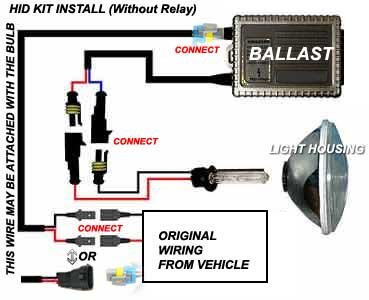Category: HID Headlight
-
![HID Headlight Flickering: 7 Common Causes & Easy Solutions [Troubleshooting Guide] 1 Why Do My Hid Headlights Flicker](data:image/png;base64,iVBORw0KGgoAAAANSUhEUgAABLAAAAKjAQAAAAAlyMttAAAAAnRSTlMAAHaTzTgAAAB5SURBVHja7cExAQAAAMKg9U/tbQegAAAAAAAAAAAAAAAAAAAAAAAAAAAAAAAAAAAAAAAAAAAAAAAAAAAAAAAAAAAAAAAAAAAAAAAAAAAAAAAAAAAAAAAAAAAAAAAAAAAAAAAAAAAAAAAAAAAAAAAAAAAAAAAAAACAM440AAFaumxcAAAAAElFTkSuQmCC)
HID Headlight Flickering: 7 Common Causes & Easy Solutions [Troubleshooting Guide]
HID headlights may flicker due to damaged or loose wiring, faulty bulbs, or a failing ballast. These issues can cause intermittent flickering or dimming of the headlights. Addressing these potential problems can help resolve the flickering and ensure proper functioning of the HID headlights. If you’ve noticed your HID headlights flickering, it can be a
-
![Brightest HID Headlights: Ultimate Comparison Guide [2025 Reviews] 2 What are the Brightest Hid Headlights](data:image/png;base64,iVBORw0KGgoAAAANSUhEUgAAA6UAAAI6AQAAAAD3HdPJAAAAAnRSTlMAAHaTzTgAAABYSURBVHja7cEBDQAAAMKg909tDjegAAAAAAAAAAAAAAAAAAAAAAAAAAAAAAAAAAAAAAAAAAAAAAAAAAAAAAAAAAAAAAAAAAAAAAAAAAAAAAAAAAAAAAD+DAbLAAGdVwlZAAAAAElFTkSuQmCC)
Brightest HID Headlights: Ultimate Comparison Guide [2025 Reviews]
The brightest HID headlights are typically in the 5000K to 6000K range. These temperatures produce the whitest and most intense light output. When it comes to upgrading your vehicle’s headlights, finding the brightest HID headlights can significantly improve your visibility and driving experience. HID headlights, also known as xenon headlights, are known for their intense
-

How to Install HID Headlights for a Brighter, Safer Drive!
To install HID headlights, follow the steps in instructional videos or installation guides for a straightforward process. HID headlights offer improved brightness and a clean look, making them a popular upgrade, even for beginners. The installation typically involves no major modifications and can be easily accomplished with the right kit. Aftermarket HID conversion kits are
-

How to Adjust HID Headlights: Easy Step-by-Step Guide for Best Visibility
To adjust HID headlights, locate the hex (allen) socket on the side of the lights and turn it to adjust the vertical position of the lamps. It’s best to do this at night in front of a garage door or wall. Adjusting HID headlights is a straightforward process that can greatly improve visibility and safety
-

What is HID Headlight?: Unveiling Brighter Roads Ahead
An HID headlight is a type of electrical gas-discharge lamp that produces light through an electric arc between tungsten electrodes in a translucent arc tube. It delivers brighter light than standard headlights, improving visibility and safety on the road. High-intensity discharge (HID) headlights are a popular automotive lighting option known for their superior brightness and
-

How to Replace HID Headlight Bulb: Quick & Easy Guide
To replace an HID headlight bulb, first, remove the plastic brackets and then the old HID bulb. Next, install the new bulb and reattach the plastic brackets. Replacing an HID headlight bulb involves removing the old bulb, installing the new one, and reattaching any components that were removed during the process. This task can be
-

What Does HID Headlight Stand for?: Illuminating Insights
HID Headlight stands for High-Intensity Discharge. It refers to a type of brighter-than-standard headlight. HID lighting uses high-intensity discharge technology to produce brighter light than traditional halogen headlights. This type of headlight contains an HID bulb with two electrodes enclosed in a glass chamber. When electricity enters the base of the HID lamp, it flows
-

Why are My Hid Headlights So Dim?: Bright Solutions Await!
Your HID headlights may be dim due to issues such as misalignment, faulty bulbs or ballasts, and dirty lenses. These problems can cause the beam to appear dimmer or not project as far as it should. In some cases, the headlights may even turn off completely, leaving you in the dark. To address this, consider
-

Are HID Headlights Legal?: Uncover the Truth
HID headlights are legal if they meet specific regulations and guidelines. In the US, the Department of Transportation (DOT) ensures compliance. When it comes to automotive lighting, the legality of High-Intensity Discharge (HID) headlights is a common concern. HID headlights are popular due to their bright and efficient illumination. However, there are regulations and guidelines
-

How Do HID Headlights Work: Illuminating the Tech!
HID headlights work by sending an electrical discharge between two electrodes through a plasma or ionized gas. This process creates light that is brighter and more efficient than traditional halogen headlights. HID headlights are popular among car enthusiasts for their superior illumination and stylish appearance. HID headlights, short for High-Intensity Discharge headlights, have gained popularity

![HID Headlight Flickering: 7 Common Causes & Easy Solutions [Troubleshooting Guide] 1 Why Do My Hid Headlights Flicker](https://lightthetrack.com/wp-content/uploads/2024/07/why-do-my-hid-headlights-flicker.jpg)
![Brightest HID Headlights: Ultimate Comparison Guide [2025 Reviews] 2 What are the Brightest Hid Headlights](https://lightthetrack.com/wp-content/uploads/2024/07/what-are-the-brightest-hid-headlights.png)







